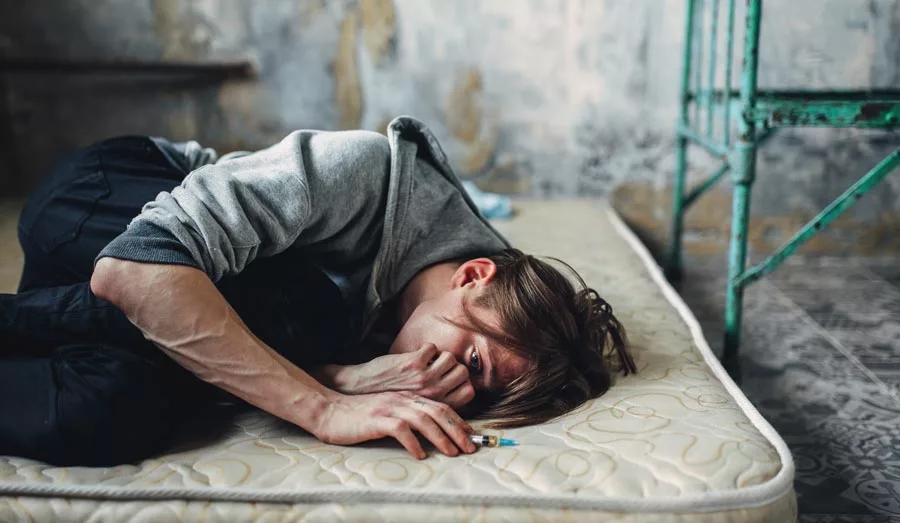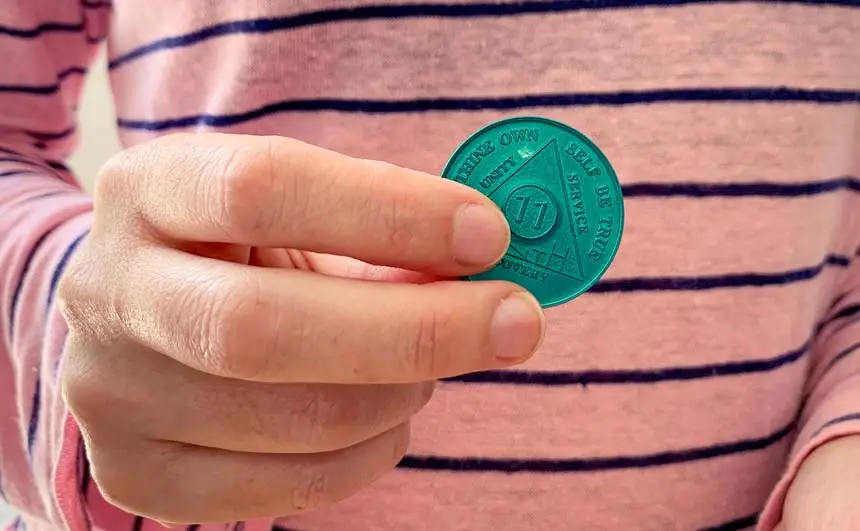What Is A Cocaine Addiction?
Table of Contents
- What Is A Cocaine Addiction?
- Is Cocaine Addictive?
- The Side Effects of Cocaine Addiction
- What are Cocaine’s Withdrawal Symptoms?
- Links Between Drug Abuse And Mental Health
- The Rehab Process for Addiction Treatment
- What Makes an Effective Cocaine Addiction Rehab?
- Cocaine Addiction Treatment Therapies
- Find a Cocaine Rehab Center Near You!
Drug addiction can start for a multitude of reasons such as peer pressure, family history, and a method of coping with a difficult situation. Drug addiction is a complex mental disorder in which an individual struggles with the proper inhibition of drug-taking behaviors.
Cocaine is one of many addictive substances that potentially can throw an individual’s life into a spiral. Individuals struggling with a cocaine addiction cannot properly control their cocaine usage.
Keep reading to find out more about cocaine addiction, and what makes an effective cocaine addiction rehab!
Is Cocaine Addictive?
Yes, cocaine is highly addictive. When cocaine is consumed, in any of its many consumption methods, it activates neurotransmitters within the brain responsible for energy and motivation. This activation supports the behavior of using cocaine and causes individuals to struggle with use.
Every individual’s body is different from another individual’s body however, cocaine is a very powerful substance and an individual can become addicted to cocaine very quickly, even with a singular use.
Crack cocaine is another form of cocaine that is even more addictive than powder cocaine. Crack cocaine abuse can lead to many difficult issues to arise within an individual however, receiving drug rehab treatment is the best path to recover from these issues.
The Side Effects of Cocaine Addiction

Cocaine is a highly toxic substance that affects different aspects of an individual’s body. It can be difficult for an individual to properly process the substance, especially when more of the substance is continuously consumed.
According to the National Institute on Drug Abuse, some of the short-term side effects of cocaine addiction include:
- Euphoria
- Restlessness
- Irritability
- Anxiety
- Panic
- Paranoia
- Violent behavior
- Tremors
- Vertigo
- Muscle twitches
- Constricted blood vessels
- Dilated pupils
- Increased body temperature
- Heart rate
- Blood pressure
Chronic cocaine use or long-term use has many health drawbacks and also causes individuals to struggle in unforeseeable ways. The long-term effects of cocaine abuse include:
- Panic attacks
- Psychosis
- – Hallucinations
- – Out of touch with reality
- Gastrointestinal tears
- Malnourishment
- Increased risk of:
- – Heart disease
- – Seizures
- – Strokes
- – Movement disorders
- – Parkinson’s disease
- Decreased cognitive functions
What are Cocaine’s Withdrawal Symptoms?
Withdrawal symptoms are one of the biggest reasons an individual relapses from recovery. Withdrawals from a substance can be immensely difficult to manage and overcome without receiving treatment for it.
Most of the withdrawals from cocaine abuse are psychological and force individuals into difficult mental battles. Being unaware of these withdrawals leave an individual to suffer an unexplainable experience.
The withdrawal symptoms from cocaine addiction include:
- Agitation and restless behavior
- Depression
- Fatigue
- General discomfort
- Increased appetite
- Vivid and unpleasant dreams
- Slow mobility and function
- Intense cravings
- Suicidal thoughts
- Paranoia
Withdrawals can be very dangerous for an individual. As an individual is battling the cravings alongside the other symptoms, an individual may relapse from stopping cocaine abuse and take too much of the substance leading to overdose.
Links Between Drug Abuse And Mental Health
Drug abuse can hinder and severely decrease an individual’s life experience. Some individuals may use drugs or substances as a method to cope with a difficult experience including grief, depression, stress, etc.
In this unhealthy method of coping, individuals may find a false and temporary solution in which their drug use only creates further problems for them rather than deal with or maintain their experience.
Cocaine use specifically can lead to many different difficulties to arise within an individual’s life which can be seen in struggling work experiences and personal experiences. As the withdrawals from cocaine are mainly psychological, an individual’s mental health is significantly important.
Ignoring and disregarding the struggles of mental health can lead to further worsening of conditions and an individual’s experience. In some cases, individuals lean on other substances as a method to manage their addiction.
Anxiety and stress are major parts of individuals lives that are often overlooked in our everyday society. It is important to have a method of stress and anxiety management to properly process these mental conditions.
Some healthy methods of relief for these conditions can be seen in meditation and breathing exercises. Drug abuse is a negative form of relief that actually worsens their conditions and experience rather than improves it. An individual using cocaine is left to deal with more mental issues.
What Is A Substance Use Disorder?
Some individuals struggling greatly with controlling substance use may be experiencing a substance use disorder. Substance use disorders are mental disorders in which an individual is unable to properly inhibit substance use.
According to the Substance Abuse and Mental Health Services Administration, addiction is the most severe case of a substance use disorder. An individual struggling with other mental disorders are more likely to develop a substance use disorder.
As an individual can have multiple disorders within themselves at the same time, having mental health disorders alongside a substance use disorder is called a co-occurring disorder. There is the question of which came first, the substance disorder or co-occurring disorders however, there is currently no distinguishable way to know which came first.
Substance use disorders is the general term for the many different substances. A cocaine-specific use disorder is a cocaine use disorder. It is important to get cocaine specific treatment for cocaine abuse issues.
Individuals with a cocaine abuse problem may turn to alcohol abuse. Cocaine use disorders themselves are already complex issues and another substance, aside from a dedicated medication for treatment, will not assist with recovery.
The Rehab Process for Addiction Treatment
Most people need to go through the full process of cocaine rehab in order to build a long lasting, well-rounded recovery. This is often the only way to stay sober after treatment.
- The first step in drug abuse treatment programs is detox. Detoxification from cocaine itself does not take very long, usually 3-5 days. The withdrawal symptoms that come with cocaine may be severe and can last for a few weeks before an individual is stable.
- Next, individuals will be treated for their addictions with behavioral therapies or pharmacological therapies. This could last anywhere from a few weeks to a year or more. This typically is determined by the severity of an individual’s addiction.
- Cocaine addiction treatment programs mainly contain behavioral therapies as the core treatment.
- Finally, when patients are stabilized and have learned to live their lives without the drug, they can leave addiction rehab, although they may want to continue on with an aftercare treatment program.
Post-Recovery Treatment

According to the Substance Abuse and Mental Health Services Administration, aftercare can include a number of options such as sober living homes, halfway houses, or 12-step groups like Cocaine Anonymous.
Aftercare can last for a long time, and in some cases, may even include multiple treatment programs, especially for individuals who choose to go through outpatient treatment after inpatient care.
These programs are very beneficial for individuals as they help support retention of recovery and reinforcing drug abstinence. An individual is able to maintain and utilize the skills they have learned and lead a better, more stable lifestyle.
What Makes an Effective Cocaine Addiction Rehab?
There are many programs for cocaine addiction recovery. An individual in cocaine addiction rehab is often struggling through their withdrawals. Thankfully, the treatment programs and resources available allow individuals to properly recover.
Some of the many resources available at a treatment center include individualized therapy, group therapy, and family therapy to support an individual’s needs. The needs of many individuals will be their struggle with mental health disorders and mental health issues.
These treatment centers are equipped to treat cocaine addiction. As cocaine influences many different parts of an individual’s mental condition, it is likely one of their needs for treatment is therapy to manage these symptoms.
Co-occurring disorders can be treated at these treatment facilities. Learning how to best manage and cope with an individual’s experience can best assist them with overcoming cocaine addiction.
Rehab for cocaine is not the same for every individual, but most people need intensive treatment early on in their recoveries from this dangerous drug. Afterward, they may often choose to seek another form of treatment, which can sometimes require them to go through multiple cocaine rehabs.
Inpatient Treatment
Inpatient or residential treatment is a form of treatment in which individuals live on-site at a treatment center as a part of their treatment program. This can be highly beneficial for individuals that wish to be removed from their environment.
Inpatient care can provide an individual with the stability they may need for recovery. Drug abuse typically creates an unstable life-style for an individual. To recover from drug abuse, it is important for an individual to live with stability and rely on the stability to move forward.
Inpatient care provides 24-hour treatment to individuals in a hospital setting. This is often necessary, as many cocaine users have severe withdrawal symptoms and are not well physically. Usually, this is the best choice for those in early recovery.
Outpatient Treatment
Outpatient centers offer scheduled appointments for patients who need less intensive treatment. Outpatient cocaine rehabilitation is usually the best choice for those who have been through cocaine rehab before and are just looking for a program that will strengthen their recoveries.
This type of treatment is also what makes up most of the aftercare programs. It could be a beneficial aftercare program for those leaving residential or inpatient care.
Medical Detox
A medical detox is usually the first step in the addiction treatment process. With continued substance abuse, it is important to cleanse an individual from the substance and allow them to return to normal bodily functions without the substance.
A medical detox is a drug detoxification process where an individual lives on-site at an inpatient facility which provides an individual with 24 hour medical care and attention. This allows an individual to safely remove the toxic substances from their system as medical staff support individuals through withdrawals.
Chronic cocaine abuse leads individuals to experience severe withdrawals from cocaine and require a medical detox to properly remove the cocaine dependence within themselves before moving onto therapy for addiction treatment.
Partial Hospitalization Programs or PHPs
Provide a more flexible form of detoxification called ambulatory detoxification. In this intensive outpatient treatment program, an individual is able to receive treatment during the day and then go home at night. This program is typically used to treat individuals suffering from moderate to mild withdrawal symptoms.
PHPs give patients the option of seeking treatment in a controlled environment during the day and returning home at night. Cocaine abusers who seek this type of care will often have strong support systems at home but may need more intensive treatment during the day.
Cocaine Addiction Treatment Therapies

There are typically two forms of therapy for addiction which include behavioral therapy and pharmacological therapy however, there are currently no FDA approved medications in treatment for cocaine addiction.
There still are some medications which can help with managing some of the symptoms of cocaine withdrawal and support recovery.
Behavioral therapy is at the forefront of cocaine addiction recovery. As cocaine reduces the quality of life of most, if not all, individuals abusing cocaine, behavioral therapy allows individuals to rebuild and relearn lost mental functions.
Cognitive-Behavioral Therapy Or CBT
CBT is a form of treatment that focuses on how crucial learning is in substance abuse. This treatment helps individuals with learning and recognizing negative behaviors within themselves, understanding the issues with substance abuse, how to correct negative behaviors, and how to manage or cope with mental health issues.
This treatment gives power back to an individual that lost it to substance abuse. An individual is able to recognize and manage their issues themselves to avoid relapse and maintain abstinence through the techniques and strategies learned in CBT.
Family Behavior Therapy Or FBT
FBT is similar to CBT in the idea of educating and supporting recovery through learning but addresses other issues within the family life-style that may be hindering how recovery is happening.
Educating the individual alongside a family member or loved one allows the recovering individual to return to a stable and healthier life-style. Being surrounded by support is gravely important for individuals to maintain stability and recovery.
Group Therapy
Group therapy is often a form of therapy in which recovering individuals all undergo the same treatment together. The collaboration together helps promote recovery as individuals can watch others recover and vice versa for others.
This treatment also reduces the feeling of isolation and provides individuals with a connection to other individuals, especially at this time of need.
Find a Cocaine Rehab Center Near You!
Again, cocaine treatment can entail many different programs all of which is determined by the needs of an individual. Cocaine addiction treatment will mainly focus on therapy and other treatment as a way for an individual to manage and maintain recovery and abstinence.
Trying to find cocaine treatment can be difficult, especially when struggling with withdrawals and worrying about what rehabilitation is like. Here at Find Addiction Rehabs, we can help with making that process easier!
Whether finding a treatment center in your location, or connecting you with recovery tools and resources, our hotline is available 24/7 to make sure you can get the help you need, anytime you need it.
Cocaine withdrawals are very intense and can lead to relapse within individuals. Call us today and we can help you transition into the proper treatment center you need to get through the difficult withdrawals and into a healthy, sober new way of life! 2


